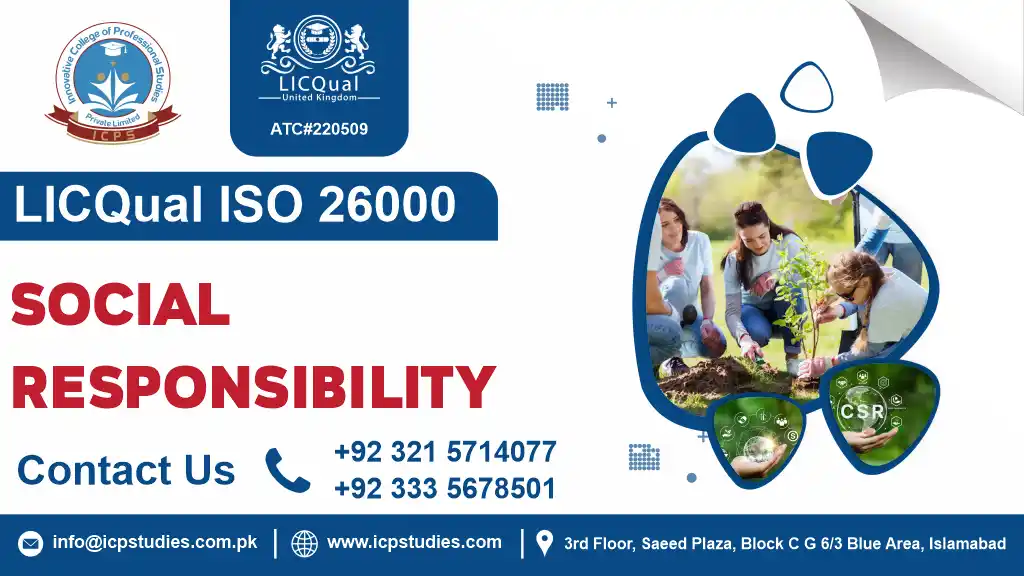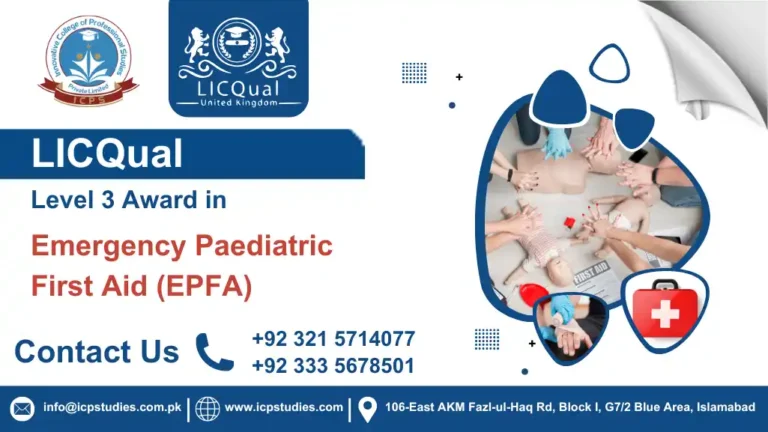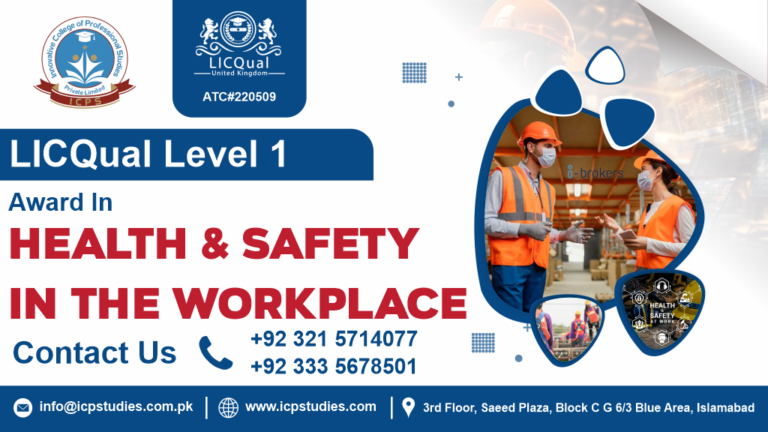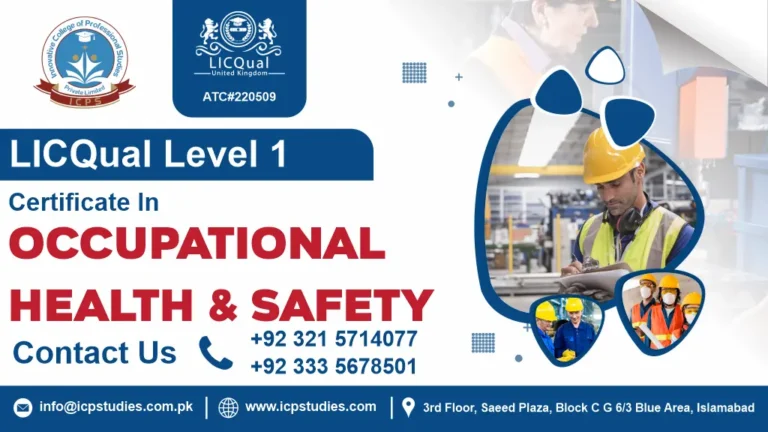In an increasingly interconnected world, organizations are expected to operate not only profitably but also responsibly. Social responsibility is no longer a mere option but a critical element of a company’s operations, influencing its reputation, stakeholder relationships, and long-term success. This is where the role of an ISO 26000 Social Responsibility Lead Implementer becomes crucial.
ISO 26000 is an international standard providing guidance on social responsibility (SR). Unlike other ISO standards, ISO 26000 is not a certification standard but offers a framework for organizations to operate in a socially responsible manner. It covers a wide range of topics, including ethical behavior, human rights, labor practices, environmental stewardship, fair operating practices, consumer issues, and community involvement.
ISO 26000 Social Responsibility Lead Implementer is vital for guiding organizations toward ethical and sustainable practices. By developing and implementing socially responsible strategies, engaging with stakeholders, and continuously improving practices, these professionals help organizations build a positive reputation, manage risks effectively, and contribute to broader sustainability goals
All About ISO 26000 Social Responsibility Lead Implementer
Course Overview
An ISO 26000 Social Responsibility Lead Implementer is a specialist responsible for guiding organizations in the adoption and management of social responsibility practices in accordance with the ISO 26000 standard. This role involves developing, implementing, and overseeing strategies and practices that align with ISO 26000 guidelines to ensure that an organization operates in an ethical, sustainable, and socially responsible manner.
ISO 26000 Social Responsibility Lead Implementer is vital for organizations aiming to operate ethically and sustainably. By developing and implementing social responsibility strategies, engaging with stakeholders, and driving continuous improvement, these professionals help organizations build a positive reputation, manage risks effectively, and contribute to broader sustainability goals.
Study Units
- Introduction to ISO 26000
- Core Subjects of Social Responsibility
- Stakeholder Identification and Engagement
- Social Impact Assessment
- Integration of Social Responsibility
- Performance Measurement and Reporting
- Continuous Improvement
To enroll in the LICQual ISO 26000 Social Responsibility Lead Implementer Course, candidates should meet the following entry requirements:
- Educational Background:
- A minimum of a Level 4 qualification or equivalent in a relevant field (e.g., social sciences, business management, sustainability, or environmental studies).
- Professional Experience:
- At least two years of experience in social responsibility, corporate social responsibility (CSR), sustainability, or a related area. This experience should include involvement in implementing or managing social responsibility initiatives.
- Understanding of ISO Standards:
- Familiarity with ISO 26000 and related social responsibility standards is highly recommended. A foundational understanding can be demonstrated through prior training or professional experience.
- Basic Knowledge of Social Responsibility Principles:
- An understanding of social responsibility concepts, practices, and stakeholder engagement is advantageous.
- Language Proficiency:
- Proficiency in English (or the language of instruction) to ensure comprehension of course materials and active participation in discussions.
- Commitment to Learning:
- A willingness to engage actively in the learning process, including participation in group activities and practical exercises.
Meeting these requirements will help ensure that participants gain the most from the course and are well-prepared to undertake the responsibilities of a lead implementer in social responsibility initiatives. If you have any questions about your eligibility or need assistance, please contact our course coordinator for guidance.
The LICQual ISO 26000 Social Responsibility Lead Implementer course is designed for professionals involved in implementing social responsibility practices within organizations. This typically includes:
- Corporate Social Responsibility (CSR) Managers: Those responsible for developing and managing CSR initiatives.
- Sustainability Officers: Individuals focused on promoting sustainable practices within their organizations.
- Quality Managers: Professionals integrating social responsibility into quality management systems.
- Compliance Officers: Those ensuring adherence to social responsibility standards and regulations.
- Consultants: Professionals advising organizations on implementing ISO 26000 guidelines.
- Executives and Senior Management: Leaders looking to enhance their organization’s social responsibility strategy.
- NGO Representatives: Individuals from non-profits interested in aligning with ISO 26000 principles.
The course aims to equip participants with the knowledge and skills needed to effectively implement and manage social responsibility in line with ISO 26000 guidelines.
Learning Outcome
1. Introduction to ISO 26000
- Understand ISO 26000 Framework: Gain a comprehensive understanding of the ISO 26000 standard, including its scope, principles, and objectives related to social responsibility.
- Identify Key Components: Recognize the core components of ISO 26000 and how they apply to organizational practices.
- Context and Benefits: Learn about the context of social responsibility and the benefits of implementing ISO 26000 for enhancing organizational ethics and sustainability.
2. Core Subjects of Social Responsibility
- Learn Core Subjects: Understand the seven core subjects of social responsibility outlined in ISO 26000: Organizational Governance, Human Rights, Labor Practices, The Environment, Fair Operating Practices, Consumer Issues, and Community Involvement and Development.
- Application of Principles: Learn how to apply these core subjects to develop effective social responsibility strategies.
- Integration into Practices: Develop skills to integrate these principles into the organization’s operations and policies.
3. Stakeholder Identification and Engagement
- Identify Stakeholders: Gain skills in identifying internal and external stakeholders relevant to the organization’s social responsibility practices.
- Engagement Strategies: Learn strategies for effectively engaging stakeholders, understanding their concerns, and incorporating their feedback into social responsibility initiatives.
- Communication Techniques: Develop techniques for transparent and effective communication with stakeholders about social responsibility efforts and performance.
4. Social Impact Assessment
- Conduct Impact Assessments: Learn how to assess the social impact of the organization’s activities, products, and services.
- Analyze Results: Develop the ability to analyze the results of social impact assessments to identify areas of improvement and opportunities for positive impact.
- Integrate Findings: Understand how to integrate assessment findings into decision-making processes and strategic planning.
5. Integration of Social Responsibility
- Strategic Integration: Develop skills to integrate social responsibility into the organization’s overall strategy and daily operations.
- Align with Organizational Goals: Learn how to align social responsibility practices with organizational goals and values.
- Implementation Techniques: Acquire techniques for implementing social responsibility initiatives effectively across various departments and functions.
6. Performance Measurement and Reporting
- Develop KPIs: Learn how to develop and use key performance indicators (KPIs) to measure the effectiveness of social responsibility practices.
- Monitor and Evaluate: Gain skills in monitoring, evaluating, and reporting on social responsibility performance.
- Reporting Standards: Understand how to prepare reports that comply with relevant standards and effectively communicate social responsibility achievements and areas for improvement.
7. Continuous Improvement
- Promote Best Practices: Develop strategies to foster continuous improvement in social responsibility practices.
- Review and Adapt: Learn how to review current practices, identify gaps, and adapt strategies to enhance social responsibility performance.
- Drive Innovation: Understand how to drive innovation and best practices in social responsibility to stay ahead of emerging trends and challenges.
These learning outcomes are designed to provide participants with a thorough understanding of ISO 26000 and the skills needed to effectively implement and manage social responsibility practices in their organizations.
FAQs about ISO 26000 Social Responsibility Lead Implementer







